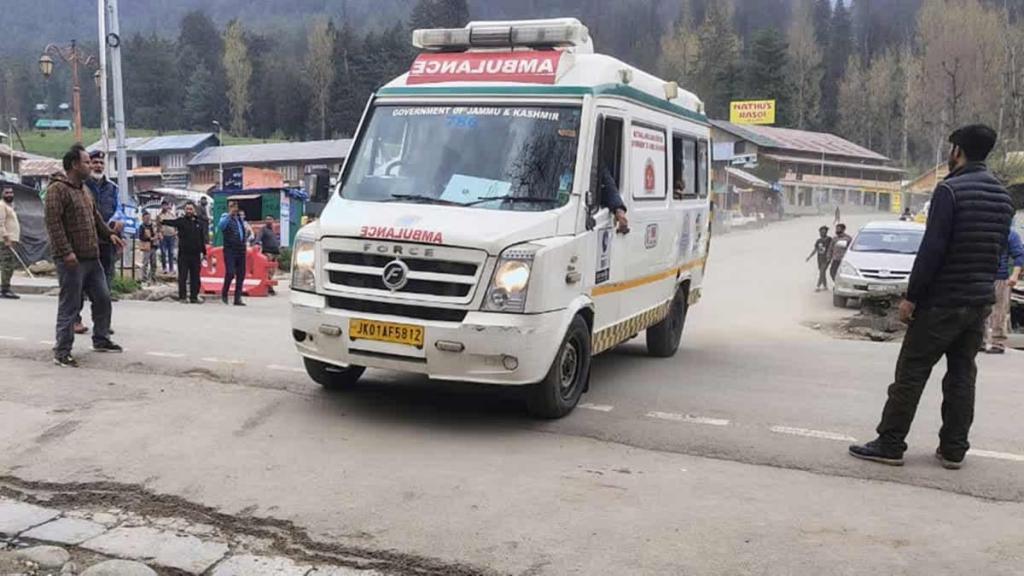[Updated] South Asian left statements on the Pahalgam terrorist attack and current India-Pakistan tensions

[Editor’s note: Activists from Communist Party of India (Marxist-Leninist Liberation) and Haqooq-e-Khalq Party (Pakistan) will be speaking at Ecosocialism 2025, September 5-7, Naarm/Melbourne, Australia. For more information on the conference visit ecosocialism.org.au.]
Joint statement by Indian and Pakistani peace activists: On and aftermath of Pahalgam tragedy
April 29, 2025
We the concerned neighbouring citizens of the subcontinent unequivocally condemn terrorism against the innocent tourists in the Pahalgam valley, and at any place on whatever pretext.
We demand a thorough and fair investigation into Pahalgam terrorism to uncover the terrorists and the perpetrators of crime in order to bring culprits to justice.
We express our deepest concern over the aggravation of ongoing dangerous tension between India and Pakistan and call for cessation of hostilities and war mongering.
We are of the considered view that fanning war hysteria and perpetuating ongoing tension into any kind of military conflict would be extremely destructive for our countries and peace-loving people.
We are of the view that the current tension needs to be diffused to initiate negotiations for a peaceful resolution of inter-state disputes.
We appeal to the governments of India and Pakistan to save the situation from going out of their hands. The logic of dialogue must prevail over the madness of the weapons of destruction.”
The leading peace activists who issued the above call for De-escalation of tension and peaceful resolution of inter-state conflicts include:
Pakistan: Imtiaz Alam, Secretary General SAFMA; Tariq Khsa, Former IG Police Punjab; Mujeeb ur Rehman Shami, Editor Pakistan; Hussain Naqi, Human Rights Commission of Pakistan (HRCP); Afrasian Jhatak, National Democratic Movement, KP; Rashid Rehman, Senior Editor
Saleema Hashmi, leading artist; Khawar Mumtaz, Woman Action Forum; Farooq Tariq, President Haqooq e Khalq Party, Gen Sec Kissan Rabita Committee; Dr Abdul Maalik, President National Party
Ayub Malik, NP Punjab; Sheema Kirmani, Tehreek I Niswan; Khawar Mumtaz. Woman Action Forum; Mohammed Tehseen, Convener Pakistan India Peoples Forum for Peace and Democracy; Syed Akhtar Ali Shah, Former IGP KP; Tasneem Rizvi, architect; Imtiaz ul Haq, MKP;
Beena Sarwar, peace activist, SAPAN; Khalid Farooqi, Editor Awaz (Jang Group); Dr Jabbar Khattak, Editor Awani Awaz Sindh; Senator Buledi, National Party (Baluchistan); Mahesh Kumar, Editor Daily Sindh; Kamran Chaudhary, peace activist; Allama Siddique Azhar, Anjuman Taraqi Pasand Musanafeen.
India: O. P. Shah, leading peace activist; Tarun Basu, peace activist; John Dayal, Senior journalist and peace activist; Satish Jacob, Gen Secretary Safma India; Kumar Ketkar, MP, leading editor; Satnam Singh Manak, Editor Ajeet, Hind-Pak Dosti Manch; Rumesh Yadev, Amritsar Lok Academy; Prof Anand Kumar, academic; Nizamuddin Bhat, peace activist; M Y Tarigami, political activist; Sunil wattal, peace activist; Anita Katyal, Senior Journalist, Safma India; Rita Manchanda, author, peace activist; Qurban Ali, peace activist; D Khajuria, peace activist; Rana Siddiqui Zaman, peace activist.
Communist Party of India (Marxist-Leninist) Liberation statement on the Pahalgam terrorist attack
Central Committee of CPI(ML) Liberation, New Delhi, April 22, 2025
The CPI(ML) Liberation strongly condemns the terrorist attack on April 22 in Baisaran, Pahalgam, where unarmed tourists were targeted, resulting in several deaths and injuries. We extend our deepest condolences to the victims and stand in solidarity with their families.
The Modi government's claim of normalisation of the situation in J & K and chest-thumping on national security stands exposed, as such attacks continue unabated in the region. There has been a disturbing rise in attacks on civilians — residents, migrant workers, and now tourists.
The BJP’s repeated proclamations of “complete normalcy” in Jammu & Kashmir ring hollow in the face of such continuing violence. While the ruling party has declared on every platform that all issues in the region have been resolved, the reality tells a different story. Jammu & Kashmir remains heavily militarized, and terror attacks persist under the watch of this regime. The Modi government’s strategy — suppressing democratic voices while indulging in aggressive posturing — has failed to deliver either peace or security.
We must reject any attempt to use this tragic incident as a pretext to stoke jingoistic and communal narratives. At this critical moment, it is essential for people across the country to stand united and push back the divisive forces seeking to exploit such tragedies for political gain.
Haqooq-e-Khalq Party (HKP, People’s Rights Party) statement on present India-Pakistan conflict
Haqooq-e-Khalq Party, April 26
HKP strongly condemns the attack in Pahalgam. We believe terrorism has no place in our society, our region, or anywhere in the world.
Such acts of violence only serve to deepen divisions and suffering among our peoples. We stand in solidarity with the victims and their families during this difficult time.
We believe India has acted in an unwarranted and belligerent way by suspending the Indus Water Treaty.
This unprecedented action violates a long-standing agreement that has survived previous conflicts and threatens the water security of millions of Pakistani citizens.
We view this as a dangerous escalation that contradicts international law and norms of peaceful coexistence between neighboring states.
We condemn continuation of atrocities and dictatorial measures against Kashmiris by Indian ruling class. We stand for demilitarization of Kashmir and the right of self-determination of Kashmiris on both sides.
War drums are not the solution to the challenges we face. We call upon progressive forces on both sides of the border to push for peace, security, and prosperity.
The people of South Asia deserve better than conflict and instability. Our shared future depends on dialogue, mutual respect, and cooperation rather than confrontation and hostility.